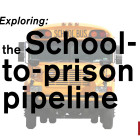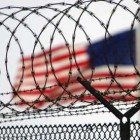
DOJ: Sunlight, Lawsuit to Close Miss. School-to-Prison Pipeline
|
The U.S. Department of Justice says a school-to-prison pipeline that runs through schools, the city police department and juvenile courts threatens children in Meridian, Miss. The school system is negotiating a new set of rules with the DOJ. The city, county, youth court and state of Mississippi, meanwhile, have just gotten hit with a federal lawsuit, and attention that may have already changed their ways. “We filed this lawsuit because we have to,” said U.S. Deputy Assistant Attorney General Roy Austin, in a public telephone conference on Oct. 25, the day after his department sued the City of Meridian, Lauderdale County, the county Youth Court judges and Mississippi’s Division of Youth Services claiming that the four agencies work together to ignore children’s due process rights and incarcerate them for minor infractions.



